Frozen: The Seven Standards of Disney
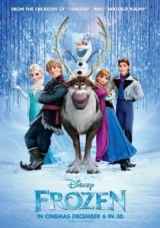
In 2013, Disney released a new musical Princess film to capture the hearts of millions and leading a sing-along of a couple of songs from the movie (one comes to mind.) The Disney movie Frozen is the most recent film about true love but with its own spin: it portrays true love between sisters. After its recent success, being praised as the best Disney movie since the Lion King (very high praise indeed), what better film to hold to those standards than Frozen? After all, if a film is praised to be as good as the Lion King, surely it can back it up.
Since Snow White, Disney Animation has held itself up to certain standards. I have identified seven of them, and I hold each Disney movie up to them in order to judge whether or not they are worthy of the hype they get. The seven standards are simple but take good artists to meet them, particularly if it is intended that all seven are met: The Origin/storyline, the Princess, (or in Frozen’s case the Princesses), the romantic storyline, the villain, the musical numbers, the settings, and the side characters.
Does Frozen meet the seven standards? Does it fall short? Is it a law unto itself, setting its own standards? Frozen did meet some standards, they took liberties with others, and some they simply did not live up to their full potential.
Origin/Storyline
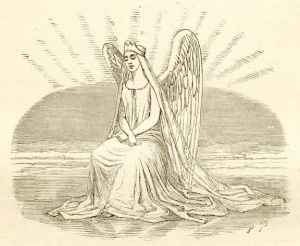
A rather simple standard to meet, all Disney movies have an origin. This origin is more often than not a Fairy tale, sometimes a novel. Frozen is adapted from the Fairy tale called the Snow Queen by none other than Hans Christian Anderson. Hans had also written The Little Mermaid which was also adapted into an animated film by Disney. As is the usual custom, Disney will take liberties with the original material and spin it in their own way. The film is not based off the tale, it is inspired by the tale.
In The Snow Queen, the central protagonists are two young children. The basis of the story goes that a troll creates a magic mirror that shows nothing but the ugly attributes of people and things reflected. The story gets a little spiritual and religious when it goes that the troll, who is called the Devil, tries putting the magic mirror in heaven to scare people away from God and His angels. The higher it goes, the more it shakes until it slips from the troll’s grasp and falls to the earth, breaking into many tiny pieces that get blown away into the wind and into people’s hearts and eyes, freezing them to see only the bad aspects of things.
The story starts years later with a little boy called Kai and his friend Gerda who live right next door. The two are introduced as very close playmates who hear the legend of the Snow Queen for the first time from Kai’s grandmother. All goes well until one day, Kai sees the Snow Queen herself from his window, beckoning for him to follow. He gets scared and runs from the window. One day, pieces of the mirror get into Kai’s heart and eyes, freezing them. Kai begins to hate Gerda and goes with the Snow Queen to her palace instead. The people of the village assume that Kai drowned and died. The heartbroken Gerda does not believe he is dead and journeys to search for him. Gerda finally arrives at the palace. Once inside, she finds Kai motionless on a frozen lake where he has to spell out the word eternity with pieces of ice. The Snow Queen had promised to release him afterwards. Gerda kisses him and he is saved. Her warm tears thaws his heart and burns the mirror fragment. After Kai starts crying, the fragment falls out and they dance around the lake before trying to spell eternity on the puzzle. They leave the palace and journey back home where they live happily ever after.
Frozen stays true to the idea of a frozen heart but instead of a magic mirror, which admittedly would have copied Snow White, they use Elsa’s ice powers instead, which accidentally freeze Anna’s head. Not to say the mirror is nonexistent in the movie, it is, (and it will be dealt with later.) Instead of focusing on the love between two kids, it does a take on the love between sisters. Frozen takes a new path. Instead of Gerda and Kai, we are introduced to Elsa and Anna. The ice powers Elsa has accidentally freeze Anna’s head as a child and she is warned against fear. In response, she hides herself away and the bond between her and Anna is broken (like the bond between Gerda and Kai. In this sense, the ice powers represent the Snow Queen.
Their parents tragically die in a sinking ship and they live alone. Elsa comes of age and during her coronation, her powers burst out burying Arendelle in eternal winter. She flees and makes her own palace (thus becoming a Snow Queen.) Anna leaves her recent fiancée Hans in charge and goes off after her (much like Gerda.) In a fit of rage, Elsa accidentally freezes Anna again, but this time she freezes her heart. Anna learns that only an act of true love can thaw her heart. Believing this refers to true love’s kiss, Anna hopes to get to Hans in time. Hans is discovered to be the villain and tries killing Elsa when Anna takes the hit instead. This act is taken as true love and she thaws almost immediately. The romantic storyline for the first time in its kind of movie takes a back seat in favor of sibling love.
It is left unexplained where Elsa’s ice powers come from and how the King of Arendelle knew to go to the trolls which has sparked many fan theories. Like the usual Disney movie, Anna does indeed look for true love and believes she find it in Hans. Unfortunately, she receives no one’s blessing, everyone showing surprise that she met Hans and became engaged to him in the same day. The whole movie, the audience is expecting a showdown between Hans and Kristoff, the second potential love interest who helps Anna get to Elsa’s palace. However, Kristoff wins the day when Hans turns out to be a selfish power-hungry psychopath.
Disney Princess
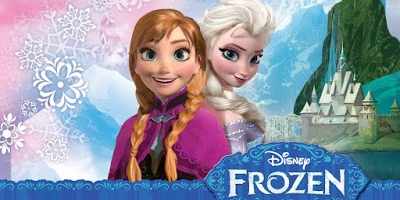
Not all Disney movies attempt to meet this standard, and so not all Disney movies are held up to this standard; however, when a movie so much as attempts to meet this standard, it must be held to the same expectations as any other and higher than some. Frozen not only met this standard, it met it in a way no Disney movie has done before it. It did not introduce one likable Disney Princess but two, each one different in her own way. Each and every Disney princess is unique and special in her own way and Anna and Elsa are no different.
Anna is the only Disney princess to have a sister, and Frozen is the only Disney movie that explores this relationship. Elsa not only has a sister, she is the only Disney princess to possess internal powers, disregarding what powers they are. Elsa is the Ice Princess and as of now one of Disney’s most beloved because of this. In this way, Elsa has surpassed not only Anna as a Disney Princess but the movie itself. Indeed, Frozen is loved because of Elsa. Had it been only Anna in the movie and her love for Hans, it would be nowhere near the success it has been met with following its release. Elsa made the movie.
Why? Let’s face it, Anna ‘s personality is very similar to Rapunzel’s. The fact that Anna has a sister does not make her unique because Elsa does too. Elsa has everything Anna has and better. Whatever makes Anna unique, it makes Elsa unique too. The Ice Princess is made more unique because of her special powers.
This can be both a good thing and a bad thing. For one, this means that Frozen did not fail with this standard. It met it and in the sense that it has two Princesses, surpassed it. It did something no Disney movie before it could do. It introduced two princesses as opposed to the typical one and made a strong point of it. The two princesses in the movie are so closely related, to take one away would destroy the movie. When Frozen introduced two princesses, however, it took a risk. Elsa has overshadowed Anna to such a strong degree that some simply dislike Anna as opposed to her more powerful sister. Thankfully, Anna is the only Disney Princess to fall in and out of love so she too is unique in her own way. It really is too bad she is overshadowed.
Disney Romance
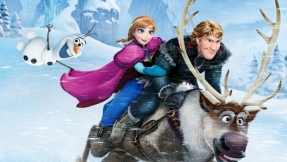
Where there is a princess, there is romance. Frozen’s romance takes a back seat but this is where the movie does not exactly attempt to meet the standard. Romance exists, just not in the same focus as before. The romantic storyline begins with Anna falling in love with Hans and singing the typical romantic duet expected of a Disney couple. From that point, the audience expects the two to form a relationship. It seems their obstacle will be earning Elsa’s blessing when she refuses to give it based on the grounds that they just met. It is a fair argument but for a Disney movie, an expected marriage. The audience expects this relationship to happen because it always happens.
However, Anna leaves Hans in charge of Arendelle while she journeys to bring Elsa back. On her journey, she meets none other than Kristoff. He too is rather surprised that she engaged herself when she barely knows the man but she continues to proclaim her love and Kristoff does not complain. From the moment she meets Kristoff, the audience is given their first surprise. A second potential love interest is a first for Disney and the audience is gearing their minds up for a showdown between Kristoff and Hans. Who would Anna pick in Disney’s first love triangle? After all, the romance is the primary thing going, right?
Wrong! Anna picks Kristoff rather easily. In fact, it was no contest. Why? Because Hans turns out to be an evil prince bent on domination due to him being the twelfth in line to the throne in his own Kingdom. He refuse to give Anna true love’s kiss and it looks like Anna’s relationship with Kristoff would be developed instead. Nonetheless, it still takes a backseat. Where the audience changes expectations to Kristoff giving true-love’s kiss instead, nothing of the sort happens. The two barely share a kiss let alone a developed relationship. It took a backseat to both Hans and the sibling relationship with Elsa. In this respect, perhaps the standard for Frozen would not be the romantic storyline, but a broader aspect of relationships. In this case, Frozen purposely set its own standard.
Unfortunately, the romantic standard is not nonexistent and the only reason Kristoff is in the movie is to play as the alternate love interest for when Hans falls. This standard is not met and Frozen did not do very well with it for reasons to be discussed later.
Disney Villain
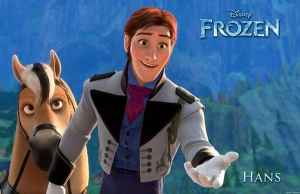
Very few Disney movies lack a villain (think Dumbo). Some Disney films have more than one (like Pinocchio) but Frozen is wild with it. Frozen has two villains but only because one was meant to serve mainly as a scapegoat than the typical villain. Hans’ intentions were so well hidden that some may think that Disney simply did not structure his character right. However, it was in fact very well done. Hans is perhaps one of the most three-dimensional Disney villains in the history of Disney. Frozen does not exactly lack a villain but it does lack your traditional villain. The villain is not clear, simple and evil in Frozen. The villain is in fact, the opposite. The villain is ambiguous, complicated and very adaptable.
At the beginning of the film, it is widely believed that the Duke of Weselton is the primary villain. Under the idea that he is indeed the primary villain, all the Duke is really after is to exploit Arendelle’s tradable goods. Basically, the Duke is a corrupted official after riches. This reminds the audience of Governor Ratcliffe of Pocahontas thus hiding the true villain in the movie. The Duke is the first person to damn Elsa as a witch, thus turning her own Kingdom against her in an attempt to exploit the hopeful ensuing chaos and take advantage of Arendelle’s unspecified tradable goods. Anna leaves her fiancée, Hans in charge of Arendelle while she leaves to look for her sister. Hans does a great job of keeping order in the Kingdom and even clashes with the Duke to add to the idea of the false villain. When Anna’s horse returns, Hans realizes Anna is in danger and takes his own journey to supposedly rescue her. The Duke tells his bodyguards to accompany him in order to kill Elsa, thinking that would bring summer back. While the bodyguards fail, Hans does succeed in bringing Elsa back after she accidentally freezes Anna’s heart.
The freezing of Anna’s heart is what brings everything to light. With both Princesses in danger, Hans decides his goal is nearing its completion and comes out as the true villain. When told that his kiss would save Anna, he laughs and mocks her loveless life. He reveals that being the twelfth in line after the true Heir in his Kingdom, he knew he had to marry into a royal family to have any chance. He preferred Elsa but she was too withdrawn so he settled with Anna, thinking he’d set up Elsa’s death after his marriage. This is what shows his adaptability. His original plan was to marry Elsa and take over. That proved impossible so he planned to marry Anna instead and have Elsa killed later. Anna and Elsa went and got themselves in trouble and Hans found himself in an excellent position to justify a killing of Elsa while leaving Anna to die. He could take over easily from there with no Heir to stand in his way and better yet, the Kingdom’s love. No villain in the history of Disney tried taking over while taking the consent of the people into account.
The beauty of Hans’ character was that it was nicely set up but in such an implicit way that when Anna asks for his kiss, it truly could have gone either way and made it believable. His smirks could have just been smiles, his imprisonment of Elsa could have just been protecting the Kingdom. The danger is that his sinister ambitions may have been too implicit for Frozen’s primary villain. Nonetheless, no one can claim that it was not foreshadowed. He did give his back story of twelve brothers, nothing to call his own, and has shown harshness to the Duke (however justified it may have been.) Hans also symbolizes the evil mirror in the original tale, (more on this later.) Hans represents the very first time Disney went on a major misinformation campaign to have the audience think the villain was someone else. Disney always had a clear villain in a movie. This was a first.
Disney Music
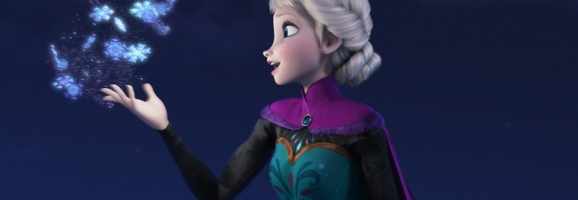
Most of the singers in this movie are Broadway veterans and experts in the musical field. The music in this movie is honestly a little lacking and at the same time surpassed so many standards Disney set for itself in the past. This gives the music in this movie a rather chaotic feel. Too harsh? Look at each and every song. The movie starts out with a Scandinavian tune to go with the cultural aspect of the movie, since it is originally a Russian tale. Nothing inherently wrong with that. In fact, it reminds you of Pocahontas when the Native Americans had their number. It’s the song that comes after that which fails to fit with the rest of the movie. Frozen Heart is sung by big, brawny men singing of the glory of ice which fits only when related to Elsa’s ice powers. When the song sets a kind of tough, macho, dangerous tone at the beginning of the movie, it gives a needlessly false impression of the movie which focuses mainly on the softer, more feminine and loving side of Anna and Elsa. The real tone of the movie is set by the next song which makes Frozen Heart needless.
Do You Want to Build a Snowman is what sets the rest of the tone for the movie and within the song the entire plot. The line that starts it all when Anna gets Elsa out of bed is “Do you want to build a snowman?” This leads to Elsa accidentally freezing Anna’s head. She is subsequently warned against fear and how dangerous her powers can be. This leads to her keeping away and from that moment on, Do You Want to Build a Snowman becomes Anna’s pleas in the form of a wider song based off the line that started it all. Her pleas of course go ignored out of Elsa’s fear that she might hurt Anna again. Half the song is sung with a hopeful tone before their parents die and starts the second half of the song which is a desperate plea for attention. The tone shifts from a hopeful beginning to a desperate ending with the castle staying shut. This sets the stage for the next song For the First Time in Forever where the castle opens its doors and windows and Anna lets out her feelings as well as her hopes and dreams for the day ahead. Some of the lyrics may sound a little forced and unnecessary, some clearly put there for the sake of the rhyme while the use of a certain word may be questionable.
“I suddenly see him standing there, a beautiful stranger tall and fair. I wanna stuff some chocolate in my face. But then we’ll laugh and talk all evening which is totally bizarre. Nothing like the life I’ve led so far.”
Honestly, Anna could have picked any other words other than stuffing her face with chocolate. Somehow, the line just doesn’t belong with the rest of the song (rhyme not intended.) But, she said them. She is clearly easier with the words she chooses than any other princess. No one else would speak of being “gassy.” As a follow up to those lines, Anna does meet the beautiful stranger and the song, in that sense set up Anna and Hans singing Love is an Open Door. This song is very good because it has a double meaning and because of this, the lyrics are nicely chosen to portray the double meaning. On one hand, it is the simple duet all Disney movies have but on the other hand, it is the villain’s song.
How is it the villain’s song? The lead up to the song is Hans telling Anna about his twelve brothers, the basis for his villainy in the first place. His first lines in the song as a response to Anna, which scarily mirror her exact thoughts (the troll’s evil mirror comes to mind in the original story) talk of him searching for his own place, which when coupled with the lead up actually do a good job of foreshadowing his villainy but keeping it blissfully implicit. And when you speak of the evil mirror, the ‘mental synchronization’ part of their duet does wonders. Hans is indeed the evil mirror, the chameleon who can reflect whoever he is talking to, the man who agreed with everything Anna said, finished her sentences, (and sandwiches according to the song) and acted so in sync with her, it was incredible. He was too good. Love is indeed the open door and that is why he is able to walk out of it so easily. Even the title foreshadowed his true motives. The villain in this movie is not the Snow Queen or even an army of trolls but the evil mirror itself. The song had implicit messages, Disney always has implicit messages and this movie is sure as hell no different.
If Hans’ evil mirror was not enough, the next song blew it and every other song ever sung out of the ice. Elsa’s Let it Go was coupled with stunning visuals and served as the sole reason why Elsa became the most loved character in the movie. Not only were the lyrics nicely chosen, but the voice was powerful and it would be coming from Idina Menzel, the voice responsible for Defying Gravity from Wicked. Indeed, the song sings of Elsa defying gravity in her own way so those familiar with Wicked and Menzel can relate very well. The musical score started on the down low but shot back up with Santino Fontana’s duet with Kristen Bell to sing Love is an Open Door (both are major singers as well and Santino is also a Broadway veteran.) Unfortunately, Let it Go is the last good song in the movie.
The next one is of Kristoff, voiced by the musical Jonathan Groff singing of how reindeers are better than people. It is the shortest song and probably the most needless song, (because the movie has literally nothing to do with reindeers.) In fact, asking Jonathan Groff to act the part of Kristoff, a secondary love interest and not give him a coherent and solid song in a movie full of songs is almost a slap in the face. The song after that, Summer, sung by Olaf, is purely comic relief so it’s a matter of opinion whether the song truly belonged in the movie or not and then we deal with the trolls who made a mockery of their own wisdom earlier in the movie with the song Fixer Upper (I couldn’t get any of the words.) The first few songs led up to the each other, all of them were internally connected until they led to a climax of Let it Go and let’s face it, without Let it Go, the musical aspect of the movie falls apart. Afterwards, the songs were just there for the sake of being there, no connection, some even comic relief. It can be established that this particular standard was kind of met but did not live up to its potential. Lion King’s music was better than this. There, I said it.
Disney Settings
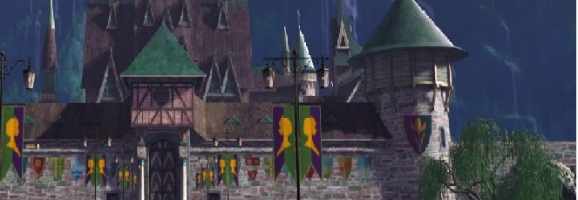
This standard can be met easily but whether or not the setting is memorable remains to be seen. What setting comes to mind when thinking of Aladdin? Agrabah. Snow White? Dwarves Cottage. Lion King? Pride Rock. Princess and the Frog? New Orleans. The list goes on and on without fail. If you think of different settings for these movies, it only goes to show how memorable settings can be. The question presents itself. Does Frozen have that type of setting? Does it have a memorable setting that the movie cannot do without? Are there too many settings in the movie that make it unclear which place you’re supposed to focus on? Does the setting fit the plotline of the movie?
There is no question that Arendelle, the Kingdom of Frozen is the setting of the movie and there is no question that it fits the plot. Its Princess has powers over ice, the people pick ice for a living, almost everything to do with the place is ice. Why? Because Scandinavia and Russia are cold places and this is the origin of the tale. It fits with both the storyline and the origin/storyline standard spoken of earlier. One can claim that the setting tries too hard and perhaps the movie stayed in the safe zone with the setting.
The strength of Arendelle is made clear not only by its icy atmosphere but its trading partners and its relationship with them. Arendelle exports ice. It has an abundance of ice. Its trading partners like Weselton are impressed by where they get the ice from. The Southern Isles are mentioned and for Hans to be there shows they have a kind of relationship. Even Rapunzel popped up to give us a feel of an open Universe. This is the first Kingdom in all of Disney that really showcased it relationship with its partners and allies. Arendelle, unlike many other Kingdoms is really fleshed out and explored. There are some Kingdoms that we are never given the name of let alone its workings. A secondary setting in the movie is Elsa’s ice palace. It is where the first and second climax takes place but it all leads back to Arendelle in the end. Whether or not one remember Arendelle as much as any other Disney setting is open for opinion.
Disney Characters
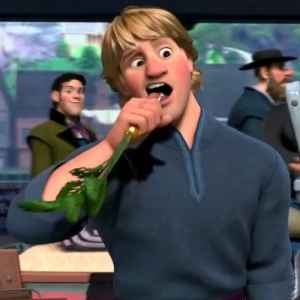
Disney always, always, always, has memorable characters. Whether it is Jiminy Cricket from Pinocchio, the three good fairies from Sleeping Beauty or the Genie from Aladdin, the movie always has at least one character that stands out and strong supporting cast of side characters. The thing that each of the aforementioned characters have in common is that they are side characters. Disney shows that even side characters, even seemingly insignificant characters like Abou from Aladdin or Figaro from Pinocchio can be greatly loved. Frozen did not go wrong with their main characters since it has two and one of them happens to be Elsa who is undeniably popular and memorable. Since Elsa, Anna and Hans have their own standard though, it is prudent that the side characters are looked at.
Aside from Elsa, Frozen presents us with Kristoff, Olaf, and Sven the reindeer. This is where Frozen falls very short. Olaf was only ok as a character. Beyond his purely comic-relief purpose, at least he was the only character to stay by Anna’s side when she was dying and even gave a little hint at what true love is and what exactly Anna was looking for.
Next comes Sven the reindeer. The problem with him is his canine personality. We’ve seen it with Maximus in Tangled and unfortunately, Disney seems to be going for the dog-like, non-dog animal. Where did they even get this idea and what exactly made them think that it would capture anyone’s hearts? Does an animal have to be like a dog? Did Abou have to act like a dog to gain people’s love? Even Raymond the Firefly in Princess and the Frog did not have to be canine to be greatly loved, (he just had to die.) So, why Sven? Why Maximus? And is this a new thing for Disney? Should we expect to see an animal with canine characteristics in every Disney movie now?
Finally, we deal with Kristoff. Let’s face it, the men in this movie suck. The only ones we see a lot of are Hans and Kristoff. Hans has earned himself hate because of his treacherous, villainous act in betraying Anna and Kristoff just has nothing to look forward to. The only reason why the audience paid any attention to Kristoff is because the audience is curious to see his showdown with Hans and who would get with Anna in the end. This relates directly to Disney’s romantic relationship. Kristoff had nothing going for him. In fact, even children would cringe at the idea of him taking a carrot from Sven’s drooling mouth and eating it. So, the action certainly could not be to appeal to a younger audience.
Due to Kristoff’s unlikeable nature (probably the worst Disney love interest), this puts not only Kristoff short but degrades the romantic relationship as well. Truthfully, Disney did not try hard with either and they purposefully downplayed the romantic relationship. What’s worrisome is that if it was unimportant to the entire movie, it would not and should not have been in it to begin with. Kristoff and his purpose are still important to the movie and Kristoff’s failure reflects a failure on Frozen’s part to bring themselves up to that usual standard.
Conclusion
Disney has seven standards each of their Disney movies, (Princess movies to be specific) must meet for the movie to be as memorable as others. Frozen did not meet all of them but they did surpass some of them. As a movie, even as a Disney movie, Frozen did very well but this does not mean it did excellently or that it is up to our usual standards. So, remember, seven standards: the origin/storyline, the princess, the villain, the romantic relationship, the music, the settings and the side characters.
The origin/storyline is an easy standard to meet. Disney typically takes an existing piece of work, adapts it, and takes some liberties, even offers its own interpretation of the original storyline. Sometimes, they even change the ending to make it more suitable for the younger audiences they target. Frozen had two Princesses and not the typical one so where it failed with the romantic relationship, it made up for in their Princess domain. In fact, that was their purpose so failing at the romantic standard is not a big deal when the Princess standard doubled its usual successes. Elsa alone was enough to captivate millions and with her, the music was superb but only because of the first half the movie, each song better than the last. Unfortunately, the other half of the movie fell short thus making Let it Go the central song in the movie, without which it would not nearly have done as well.
Through one of the songs, the villain was very original and very well done, his intentions nicely shadowed while still remaining implicit because that’s Disney’s expertise. The setting was for the first time fleshed out and the Kingdom given a fair enough story to be going on with. The only other standard besides romance where Frozen failed at was the character standard. When putting the princesses aside (which should be done seeing as how they have their own standard) there are no other characters worthy of remembrance.
Frozen failed at two standards, them being romance and character. The failure at the romance standard is made up for by the Princess standard which Frozen met with two, thus surpassing and doubling usual expectations. Their next movie will certainly have a lot to live up to there. The character standard failed badly and it’s all thanks to the comic-relief Olaf and the disgusting Kristoff, really, let alone the canine reindeer. It may be harsh but it’s the truth and Frozen, as good as it was, could have been much better, even in the musical department which was good enough in any case.
Frozen was not a failure, it met enough standards but as good as the Lion King, let alone comparable to Disney’s Renaissance? No. All one has to do is bring the renaissance movies up to those same standards to understand how these standards and aspects of Disney movies are met.
What do you think? Leave a comment.
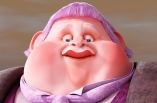
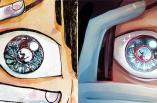
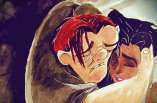
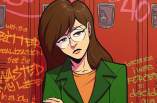
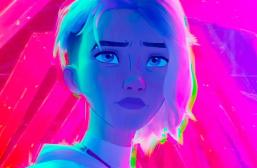
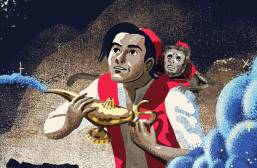
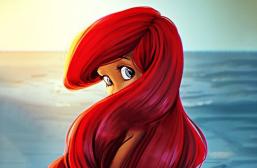
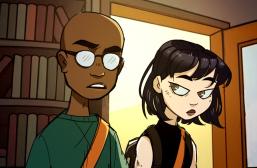
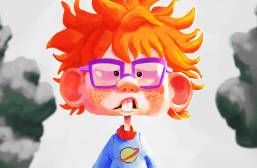
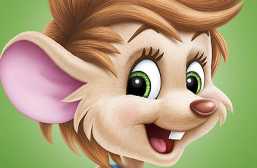
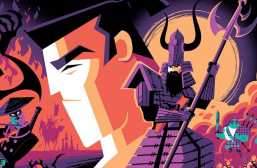
Great job again Spectre
I like your interpretations and that you stand by your opinions. Frozen is extremely popular and you have given us a fresh view of it.
Well done.
I also want to say that your Pinocchio article is one of my favorite pieces on the Artifice.
Keep up the good work.
Thanks, always good to hear. I’ll be writing more pieces in the coming future so stay tuned. I hope to write one on Princess and the Frog next. Maybe Tangled. And I must deal with Lion King. Personal favorite.
I am glad you liked the Pinocchio article. It was my first one and when I watched that movie for the first time as an adult… oh boy.
Am I the only one who was disappointed in this movie after all the good things I heard? I thought the first several songs were annoying and unneeded. The movie from right after the very opening till the introduction of the snowman was just kinda irritating, and aside from the snowman and the trolls most of it wasn’t really funny. Also I quite frankly expected Hans to betray them from the beginning. I dunno, personally I thought Wreck-It Ralph was a much better movie and should hold the title of best since Beauty and the Beast, not this.
It’s very easy to have a movie-experience ruined by too high expectations, that goes for all films, but I guess that’s something we all have to go through sometime, and sometime one will just have to give the film a second chance and look at it from a different perspective. I can assure you that if we didn’t have those first songs, the film wouldn’t have worked properly and would have been a bit less successful than it now is, everything in the film is necessary to make a great film.
I agree that Wreck-It Ralph was a really great movie, definetely one of my favourites, but not the best since Beauty and the Beast era, and I must agree that Frozen is without a doubt the best since Beauty and the Beast. I even go as far as saying it’s the best Disney-film I’ve ever seen, and to see it becoming the company’s greatest success in such a short amount of time is just really beautiful to see. But that’s just me, and all I’m saying is one should always give a film another chance. 🙂
Oh I completely agree that those first few songs were needed to tell the story in the movie. However, that just adds to why I didn’t like it. To be honest, I did re-watch it. I didn’t have the highest expectations when I first watched it, the whole reason I gave it a chance was because I saw it got good reviews, just like Wreck-It Ralph did, and when I first watched Wreck-It Ralph my biggest regret was that I had waited so long to watch it. Even watching Frozen a second time, however, did not make it better for me. The humor was generally stretched out and few and far between, the ending was predicable (I saw the Prince betraying her from the first time they introduced him so I was waiting for it throughout the film) and the whole sacrifice oneself scene went by FAR too fast. She didn’t remain frozen for long enough to really have the impact of the loss set in, not like the loss in movies like Beauty and the Beast or even the loss of the wife in Up. Is it one of Disney’s better movies? Sure, I can grant it that. The best? Far from it. The story felt disjointed. It didn’t have that great of a flow of this happened so this has to happen now and that leads to this… it had some jumps that didn’t make a lot of sense (for instance, why didn’t the princess simply tell the queen right away that the kingdom was frozen and she had to come back to set things right when she first met her? Why couldn’t the Queen simply thaw out the Kingdom? Why does suddenly being shown she’s loved, which was shown before, thaw out the Kingdom when the Princess came to her castle showing her love earlier? If an act of love is all it took to thaw the heart why didn’t the snowman showing the Princess love or the ice collector carrying her to town thaw the heart?) and took away from the movie. Overall, it wasn’t bad, but in a lot of ways I felt it was sloppy and overrated.
I hated this movie soooo much! It was one of the worst Disney movies ( and there are a lot of bad ones) I’ve seen. I’ll never ever recommend it to anyone.
The sad thing is I didnt go see it when it was in theaters. I didnt think it was going to be good because Disney didnt have a good movie in a LONG time. But now I feel bad that I missed the best movie ever and pray for a sequel. And let it go is the best song ever! This made me to start loving Disney again. And I hated other princesses. But I love Qween Elsa and Princess Anna, they are awesome!
I’m not a huge fan of animated movies like these. That said, Frozen was a pleasant excepetion. It was nice in a corny, kids movie kind of way.
Frozen is was a good movie but in comparison to the rest of the Disney movies, it felt rushed, i couldn’t shake the feeling that some parts were cut off that could be explained. For instance, who exactly are the trolls?, no real back story behind them and how did how did Elsa get her power? i know its from birth but that’s it? why was Kristoff randomly adopted by the trolls, what i saw was he was with the ice workers at the start then all of a sudden he had nobody and was adopted by the trolls? so many blanks to fill in, but it was still a good movie, kinda had to fill in those blanks with my own random imagination.
In my view, when it comes to Disney, I can’t ask these questions. Some things are just a given. The answer is Disney magic. Or probably the evil mirror. Where did Jafar get his powers from. He’s the only sorcerer in the entire movie of Aladdin. Black Cauldron did not explain the oracular pig, we’re to assume that Snow White has a special, unexplained power over animals that allows her to communicate with them. Disney magic.
I remember being about 3/4 through the movie and was like, okay, she’s going to ditch the prince, fall for the sled guy, happily ever after. I was surprised when they ditched that expected outcome and focused on the sisters. The only thing I would of liked more was if the prince didn’t turn into a mustache twirling villain and had just been like, look, I was looking for a marriage of conveniance, and still have been a stand-up guy.
That’s what I liked too. They set one thing up and purposely surprise you with another only to troll you with that too. Fantastic.
The thing that I loved about Frozen was that for years, Disney has been telling kids that love conquers all. Frozen was the first Disney movie to show that love isn’t always romantic.
We had Enchanted but that doesn’t count. In that movie, love was still romantic even if it was unorthodox.
I like Frozen but sometimes I wonder if I watched the same movie as other people because I dont understand why it is as popular as it is. Its nowhere near being the best Disney movie so I dont get why its the most successful.
It’s successful because of Let it Go. I don’t think it would’ve made it without that captivating song.
I don’t know, I can see why it garnered so much hype. I don’t think it deserved “best Disney movie since The Lion King,” but it was, story-wise, pretty excellent. I enjoyed how the story artists jumped on the trending “give the villains actual backstories” train. I loved Hans. Loved to hate him, that is.
Either way, excellent article. Very thorough analysis.
There are so many things I disagree with in this article, but I have more important things to do then go point by point. I’m actually just taking a break from studying right now. I’ll just mention one point I disagree with.
Saying Olaf isn’t a good character is just wrong. His character arc really begins when we first see Elsa and Anna playing together, and then he’s given even more character in the song Do You Wanna Build a Snowman. He’s more than comic relief. He’s a symbol of Elsa and Anna’s relationship and childhood innocence, blatantly evident by his personality. Then it’s subtly evident in many scenes like when Olaf tells Sven the sky is awake. Anna says that the first time we see her. Also, he tells Anna, in a comedic scene, that he loves her as he tries to distract “Sven’s family,” which wouldn’t be natural to tell someone after knowing them for a day, unless you’re a talking snowman your sister built (as natural as that can be). Then there’s the end where as he’s melting, he says this is the greatest day of his life with no hint of sadness that his life is ending because seeing Elsa and Anna reuniting made him that happy. Damn, this went a lot longer than I wanted. There’s more things I could mention.
First, I feel Lion King is overrated, and no, none of its songs are on Frozen’s level except for Circle of Life, and just overall, it does not compare to Frozen.
As for the article, I do not like rating the movie like this into seven categories being weighted so equally. I know you said at the romance point, Frozen set its own standard in this and shouldn’t be judged the same as other films in this respect. Still every category still feels too equal. Here’s what I mean. Personally, I’d say that Frozen’s music, princess characters, morals and messsage, subtext and foreshadowing elements are so great that if Frozen got a zero in characters, villain, and setting (which they don’t for me), I’d still say that it’s the best Disney film of all time.
Of course, I disagree intensely with this but that’s the beauty of criticism. I appreciate your point. Personally, Lion King is my favorite and to me, the best Disney movie of all time (and I will definitely be writing an article on it so stay tuned). But that’s just me.
In my view, Frozen and Lion King should not be compared because they are different styles. One is a Princess movie, one isn’t. One deals directly with romance (though it does fail with it), the other just has it as a subplot, one is about humans, the other is about animals, one is Russian origin the other is African origin based off Hamlet.
You don’t necessarily have to see these standards and aspects as equal. These are the aspects to which I hold Disney movies and have held them to since the Renaissance. Movies like Hunchback and Lion King, Jingle Book and Dumbo can’t be held to those same standards. (Dumbo doesn’t have a villain, Pinocchio has absolutely no females except that fairy, and Hunchback’s music is on a whole other league.
I am glad you love Frozen. Despite its shortcomings, I love it too. I just don’t think it’s the best. Especially if we compare it to Lion King.
Anyways, can’t discuss it extensively but if you ever want to, PM me. I’m open 🙂
It almost feels like when something is popular enough, people want to find something to hate about it so they can feel like they’re better than the mainstream.
I deal with that hate every day. Trust me.
“Disney always, always, always, has memorable characters.”
Agree with this, which I think is one point where Frozen falls short. Although I did enjoy Frozen quite a bit, and I am fond of Anna and Elsa, its other characters were less than memorable for me.
I didn’t really care for the mythos of it. Why does she have those powers? Are there others who have different kinds of powers? Couldn’t they have written a villain that she could have defeated by using her powers to further illustrate her control over her ability? I understand the whole, “sometimes your greatest enemy is yourself” concept but once you’ve conquered that aspect then there are other problems to face in the world. It just would’ve been more fulfilling for me to have seen an epic battle at the end where good triumphs over evil, in a most vivid and action filled manner. You know what I mean: explosions, fists flying, kung fu kicks, debris falling from the sky, innocent townfolk running for their lives, fire and snow raining down on the castle, armies with swords and shields, clanging and banging into one another. But, I guess that’s why this is a film geared toward females rather than the opposite gender.
I understand what you are saying, but it’s not really necessary. We don’t need a more prominent villain. The story is about the barrier between two sisters, not good guys versus bad guys, and that’s what makes the movie feel unique for a fairy tale
I just watch this movie and it remind of all of the best Disney movies like The Lion King, Beauty and the Beast, and Aladdin
I would have wished that she truly became a villain and Anna sings Do You Want to Build a Snowman (Reprise) in the end. With that plot, a sequel would truly be necessary. The sequel would contain Arendelle facing a bigger threat than Elsa and Anna would have to convince her sister to save them, and then the sister-love/acceptance scene. If there is a sequel, I hope Elsa doesn’t get a guy. It will destroy her ‘strong, independent woman’ image.
Seriously? How is being in a relationship (i.e. *real* true love) mutually exclusive with being a strong, independent woman? Being a complex, strong character means, well, being strong and independent, not mandatorily single.
Not that I need her to get a guy, I just really disagree with the above comment.
Great article Spectre! Your analysis is really insightful and you achieve to bring new interpretations and ideas on a film that has been subject to many articles already! Good job 🙂 I love Frozen and though it shows modernization in Disney’s moral principles, it is still very traditional in its form.
Great analysis! I personally enjoyed Frozen and thought it was a cute movie for the target audience but didn’t quite understand the massive hype surrounding it.
I loved reading your article! It was really interesting, although I don’t agree with everything. Particularly, I’d like to make a case for Olaf; I really think his character has a lot of valuable symbolism, including innocence and selflessness (which is a major part of true love, according to Olaf himself). But you did a thorough analysis, and I liked the standards you fleshed out.
Tangled and Mulan are my favorite Disney movies, and I’m really looking forward to an article on Tangled if you’ll write one 🙂
I think this is a very accurate and analytical article. It deeps examines the Archetypes of Disney Movies.
Great article. I don’t necessarily agree with every point, but I completely respect your opinion and how you broke everything down. What surprised me so much about Frozen was how it focused so much on the sister-sister dynamic. Unlike many other Disney movies, I really felt for Anna and Elsa’s relationship. Also, the song “Love is an Open Door” was great with how it played up the traditional “love at first sight” gimmick that is present is so many films, and then completely turned it on its head with Elsa saying that you can’t just marry someone you just met.
It’s very loosely based on the Snow Queen, but I think it’s a fun little homage that they made all the names old classic Scandinavian names.
More of the same stuff trying to be sold to us as new. What is interesting is how many adults go to these films without the kids for this escapist tripe.
When i look back at epic disney films such as Mulan and Hunch back of notre dame that didn’t get this amount of success or praise. It saddens me :(.
Movies like “Frozen” is a step back for Disney in some ways – Underdeveloped characters, uninspired songs and 3D effects, cutesy side kicks that exist only to deliver quips or comedic effect, female protagonists with the predictable attitude, personality, or insecurities, etc.
If someone lied to me and M Night. Shaymalan directed this film, I might have believed him. The “twist” on one of the male characters is laughably contrived. The film allows an interesting premise to just sort of hang without really doing anything with it. (spoiler) At the sign of a first mishap, the reaction of a character who was JUST introduced is “she’s a sorcerer, kill her!”
Maybe I’m being harsh. It’s fun for the kids and has a positive message. But the Disney brand is mostly responsible for the success of this movie, not any ingenuity in story telling.
Good article, I think you really described what’s special about this film well.
Great article!
Nice Movie, Must watch
I think Frozen is a terrible film, just awful. I haven’t watched it and i know nothing about it. It’s a great movie, i love it.
I laughed a lot when I read this.
Wonderful almost Structuralist analysis of the tropes we all expect of a Disney movie, and therefore seem even more apparent when they do not appear in a Disney film. This article proves helpful in identifying our expectations of a Disney film, thereby allowing us to critique each film we see with greater awareness.
As always, exceptional piece of writing, I loved that analysis! It truly shows what an active viewer you are, which I am sure is a gift to all movie makers and screenwriters. What I mean by that is that you take in the subtle nuances that might fly over us mere mortal heads, so thank you for that! I remember watching Frozen on the day it came out, my brothers and I, all in our early twenties, decided to take our younger cousins to the movies and while I love Disney movies, I think they were resigned to catching up an hour on sleep. I recall vividly my brother’s eyes bulging out of his sockets when Hans revealed his true nature, and suddenly he was sitting up and paying attention!
I agree with almost everything of your analysis, except the matter of Kristoff. Now, I don’t claim to fall head over heels for the guy, my Disney Prince of choice will always be Flynn from Tangled, but whilst he wasn’t the perfect prince by Disney standards, I think he is a good portrayal of the modern Disney Prince, because Disney’s core audience are children that are exposed to the wise cracks and snarky comments of everyday television these days. Children these days, due to so much exposure, think more critically. Suddenly it’s not just OK to be really handsome and to be a Prince, you need that and you need to be smart and you need to be able to keep the Princess on her toes with your wittiness, somehow those characteristics got split between Hans and Kristoff. What Kristoff lacks in personal hygiene, he makes up in modern relatability. He’s the guy that get’s thrust into the situation but ends up helping Anna anyway, he may not be the epitome of chivalry at first glance (he isn’t exactly forthcoming in helping Anna pursue Elsa whilst almost the first instance we meet Hans he is helping Anna to her feet after she falls down), but there is a core goodness in him (he really does show he has a good heart (didn’t he save Sven’s carrots when his sled was going to break, showing that he cared more about the health of his pet than any other material thing) even though he isn’t that outspoken). So he may not be like the Disney Princes of the past, but in today’s world I think he reflects that reluctant hero type that is popular in TV shows and movies today.
Aside from that minor difference of opinion :), I loved the article. It astounds me how in depth your analysis is and how it allows me to think about movies in a different, even better, light! Amazing article 😀
This is my group of friend’s absolute favorite movie, which is odd since we are all order than 21. I haven’t been able to pin point it quite yet, but it is something about the music that is more addictive than the music in other Disney movies. Maybe it’s the simplicity of it all or the happy feeling you get from singing it aloud, but the music is frozen is absolutely addicting.
It’s amazing how much Frozen has permeated the cultural ethos. Yet, one begins to wonder if the movie is timeless enough to establish itself as a classic Disney film. The Disney Renaissance are timeless classics that remain with people throughout generations. Perhaps the younger generations will appreciate Frozen, but a classic? That’s stretching it.
I completely agree with your thoughts on the movie. I have seen this movie twice (the first time in the theater, the second on DVD). The first time I saw it, I loved it, mainly because I thought the advertising was horribly riddled with cliches and I was not expecting much from it. Elsa’s inner turmoil, the surprise villain, and the “Let It Go” sequence were stand-outs for me.
After watching it a second time without the hype and praise, though, I did start to see some of the problems. Kristoff was a pretty unimportant and underdeveloped love interest, some of the songs were thinly-written, and I think the world could have either been more grounded in its Scandinavian roots (the opening “Vuelie” theme is woefully underused) or shown more of the fairy-tale aspects of Arendelle (the trolls seem out-of-place since there are not many fantasy elements in the story aside from Elsa’s powers).
I think you did a great job detailing the strengths and weaknesses of Frozen and comparing it to other notable Disney movies. I think the categorization was a smart way of analyzing the similarities and differences with other notable works from Disney and seeing whether it lives up to the standards, falls short, or surpasses it. Keep up the good work!
Wonderful analysis! I’ve been aware of Frozen’s popularity, and although I like the movie, there were some things about it that just did not seem to catch with me, you’ve helped me realize that it is indeed because of lack of character development.
Personally, I don’t find that Kristoff to be the ideal romantic material either, but as pointed out in one of the comments, he doesn’t need to be. The romance was definitely downplayed, and Kristoff’s personality shows him to be more of a ‘modern’ brand of reliable comfort romantic rather than great spectacle. But I definitely agree that Kristoff could have been handled much better. We got a brief glimpse of him and Sven at the very beginning, seeing him get adopted by the trolls. But that in itself raises more questions than ever intend to be answered. Disney left so much to be desired when they brought Kristoff in as side character. His history is important, obviously, given that the trolls help out with the magical understanding of everything. But we don’t get a sense of how that worked out, or why it was even necessary to have Kristoff involved with them, or really how much it has influenced his current life. Albeit, we don’t expect a full life-story for every side character. But we at least generally have continuity, and hints given are followed through at least a little. With Kristoff, we get nothing _but_ hints, yet no actual confirmation of what they mean. Therefore, Kristoff comes across as incomplete and simply convenient. He could have been a great addition to the storyline, but as played out, there is too much left unsaid or at least unexplained for us to care.
I never thought to delve into the little bit of incomplete-ness I felt regarding Kristoff. Thank you for helping to pinpoint more reasons for these feelings.
Again, great analysis! Enjoyed reading~
When comparing Sven to Maximus isn’t even close. At least Maximus was fun to look at and children probably laughed at his antics. Sven had one scene that could be called memorable and besides that he probably went overlooked by most viewers.
With the character of Hans, he was more of a walking plot device if anything, one who was utilized for whatever the director/writer required of Frozen’s plot. He literally goes through at least five different character types (charming dork, suave romancer, war hero, cunning manipulator, and finally murderous grinning psychopath) with no obvious lead-up into any except for what the writer said after the fact about him being a “mirror.” It’s just bad writing to go and claim that any character acts the way they do for the sake of it, especially when any reason given is never stated within the film itself.
Therefore I also disagree with the article’s comment on any foreshadowing with Hans because one – the smile he gives Anna from under the boat was meant for the audience alone since Anna herself couldn’t possibly see it, two – there was no reason for Hans to have spared Elsa’s life during the battle at the ice palace since he says later that he wanted Elsa dead other than to once again trick the audience and three – Hans’ time as the confirmed villain for Frozen lasted only around the final fifteen/twenty minutes, ending with almost non-existent fanfare as though inadvertently proving how expendable he was as a character let alone a villain (and Anna’s punch doesn’t count since by that point, the threat from Hans had long been over).
In other words, had there been other characters to fill the roles of say captain of the guard or an actual regent from the country itself to look after Arendelle (which once would’ve been the Duke of Weselton’s role as their uncle before Elsa was no longer the villain of the film), Hans logically could’ve never happened as the villain in the first place. Frozen’s world had to literally be broken in order to shoe-horn Hans into a villain when he wasn’t even the main cause of the issue that was advertised/addressed: the eternal winter.
I personally love Frozen, though perhaps not for the reasons some other people do. As you noted, I love Anna precisely because she approaches the world differently than other Disney princesses do. She talks about being gassy and stuffing her face with chocolate. She wakes up with horrifically messy hair and drool on her chin. She’s much more relatable and “real” than her predecessors.
I’m a big fan of Elsa too, but not so much because of her ice powers. Rather, I like what they and her journey represent. This is a woman who’s been taught she’s a “monster” because she’s different. She must face her fears and insecurities in order to lead a productive life and be an effective queen, like so many of us must (excluding the queen part, of course).
As you noted, the secondary characters like Sven and Olaf fall a little short. Olaf is cute, but not always funny, and the same can definitely be said for Sven. Having a canine personality does not make you effective comic relief. As for Kristoff, well…I think he and Anna make a good couple, but I also feel he was underdeveloped. That might be an occupational hazard since the movie was so focused on Elsa and Anna, but Kristoff seemed pretty bland next to them at times.
While I understand your point about Hans’ motivation and actions being too implicit for the traditional villain, I’m going to vote him up. Disney took a huge risk, not only in creating a subtler villain, but making that villain a handsome prince. They did something like that before with Gaston, but Hans is much more refined and subtle. Therefore, he’s arguably more sinister and easier to hate. If I had to complain about anything with Hans, I’d say he’s actually so easy to hate that he can come across as one-note. Other Disney villains, you can respect and even root for to some extent. Not so with Hans.
Finally, I have to say I love Frozen’s music; some of it is on my iPod. For me, Frozen was the return to the Disney musical, wherein its songs moved the story along and explained character motivations. The cut songs are pretty good, too; check out “Life’s Too Short” and its dark reprise for the best example.
I will say that there has been some digging into Hans Christian Anderson’s fairy tale book.